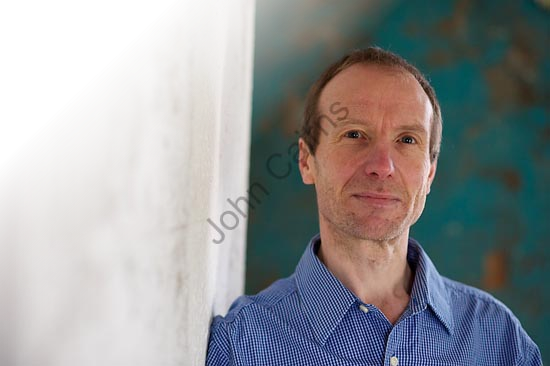
My interest in early music started at school, where I was inspired by the recordings of David Munrow, which prompted me to take up the viol, recorder and baroque flute.
I went on to read music at Cambridge. While I was there, my biggest musical influences took place during the vacations, when I busked my way around Europe, discovering the joys and sorrows of a hand to mouth existence. They have stood me in good stead as a freelance musician! It was, as it turned out, the busking scene in London that first introduced me to alternative styles of music, from Ireland and Eastern Europe.
In the early 1980s I joined the Medieval Players theatre company as a musician, and began a series of tours of most of the provincial towns of Britain, armed only with a booth and trestle stage, and a fetching pair of purple tights. The musical fruits of this company became The Carnival Band, formed in 1983 (now, mercifully, tights free). My interest in traditional British and Irish music led to a range of other collaborations: during the 1990s I worked with June Tabor, and joined the Irish band Afterhours, who survived several years on the road together in Britain, Europe and America. I also worked, and continue to work, with Maddy Prior, and played English traditional music as a founder member of Bellowhead.
In 1987 I became a founder member of the Dufay Collective, an early music group which subsequently earned an international reputation for its revitalisation of medieval and renaissance music. We toured, recorded and broadcast extensively for the next twenty years. One of the offshoots of my work with the Dufays was a smaller collaboration with the singer Vivien Ellis, with whom I formed the duo Alva, to explore the links between medieval and traditional music.
In 1992 I took time out to study Arabic violin in Cairo with Ashraf Sharki, and the renowned Egyptian violinist and composer Abdu Daghr. I returned to Egypt several times to work with Egyptian musicians, and later studied oud with the Lebanese singer, Abdul Salaam el Kheir.
Despite my formal education, I have always been fascinated by the alternatives to the western classical tradition. The ornamentation and the informality of traditional music, be it Arabic or Celtic, bluegrass or klezmer offers a different experience of music making. These traditions have their own conventions, but they are shaped by their players, and are free from many of the constraints of the classical violin and the world it inhabits.
